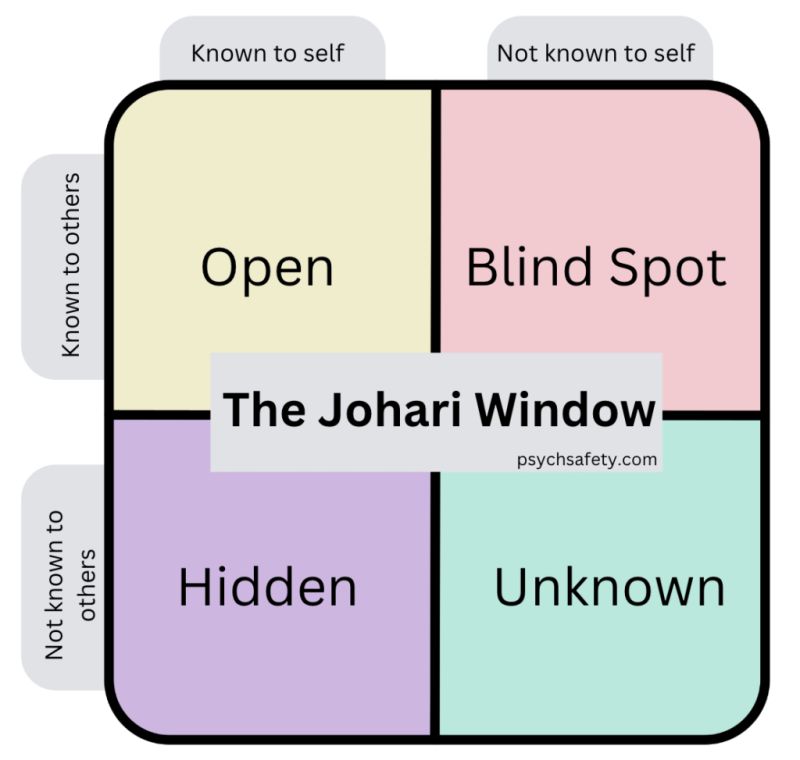You can build trust with your team through better awareness of your Blind Spots (things others know about you but you’re unaware of).
In the Johari Window model, this means moving from the Blind Spot box to the Open Area (where you and others both know the same things).
To accomplish this, you need to actively seek feedback and show an openness to personal growth.
Here are three effective ways to facilitate this shift:
- Remember F.I.G. (Feedback Is Good):
✅ Make a habit of asking team members for feedback on your blind spots. What should I know that I might not see in myself?
✅ Invite honest input on specific areas too, such as, “How could I better support the team during busy phases?” or “Is there anything I could improve in the way I run meetings?”
✅ This practice helps uncover blind spots and shows you’re committed to improving for the team’s benefit. - Practice Active Listening and Non-Defensiveness:
✅ When team members offer feedback, listen without interrupting or reacting defensively.
✅ This attitude demonstrates maturity and encourages openness, building trust as others see you genuinely value their insights.
✅ Thank them for the gift of their feedback. - Reflect and Take Action on Feedback:
✅ After receiving feedback, reflect on it and increase your awareness to catch yourself in the described behavior.
✅ Then make visible changes based on what you see and learn.
✅ Showing a willingness to adjust fosters a trusting environment where team members feel valued and respected.
We all have blind spots. The more we admit this and realize the FIG principle is powerful, the faster we will accept feedback and make improvements.
What’s holding you back?
Link to original LinkedIn post and comments

